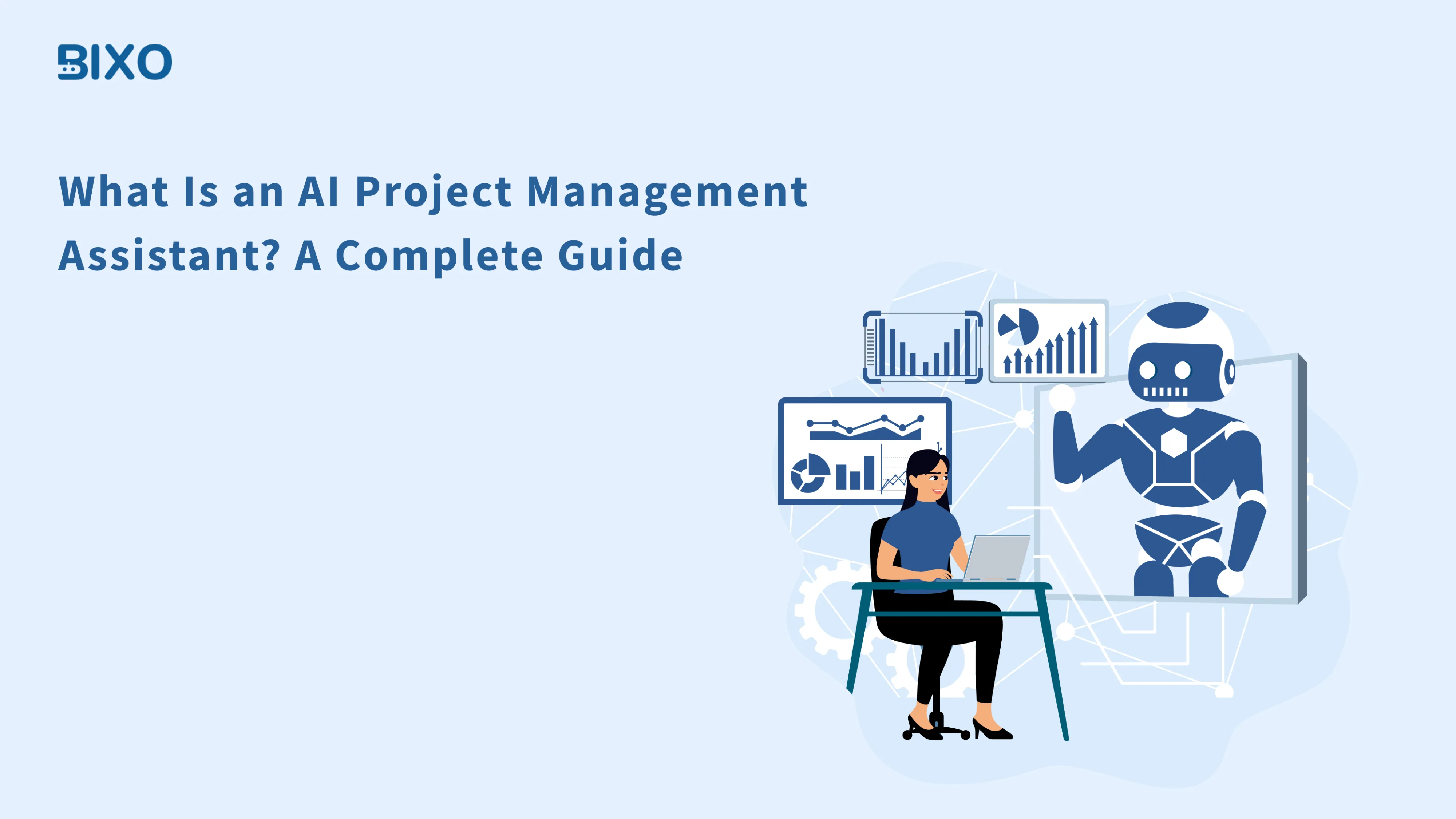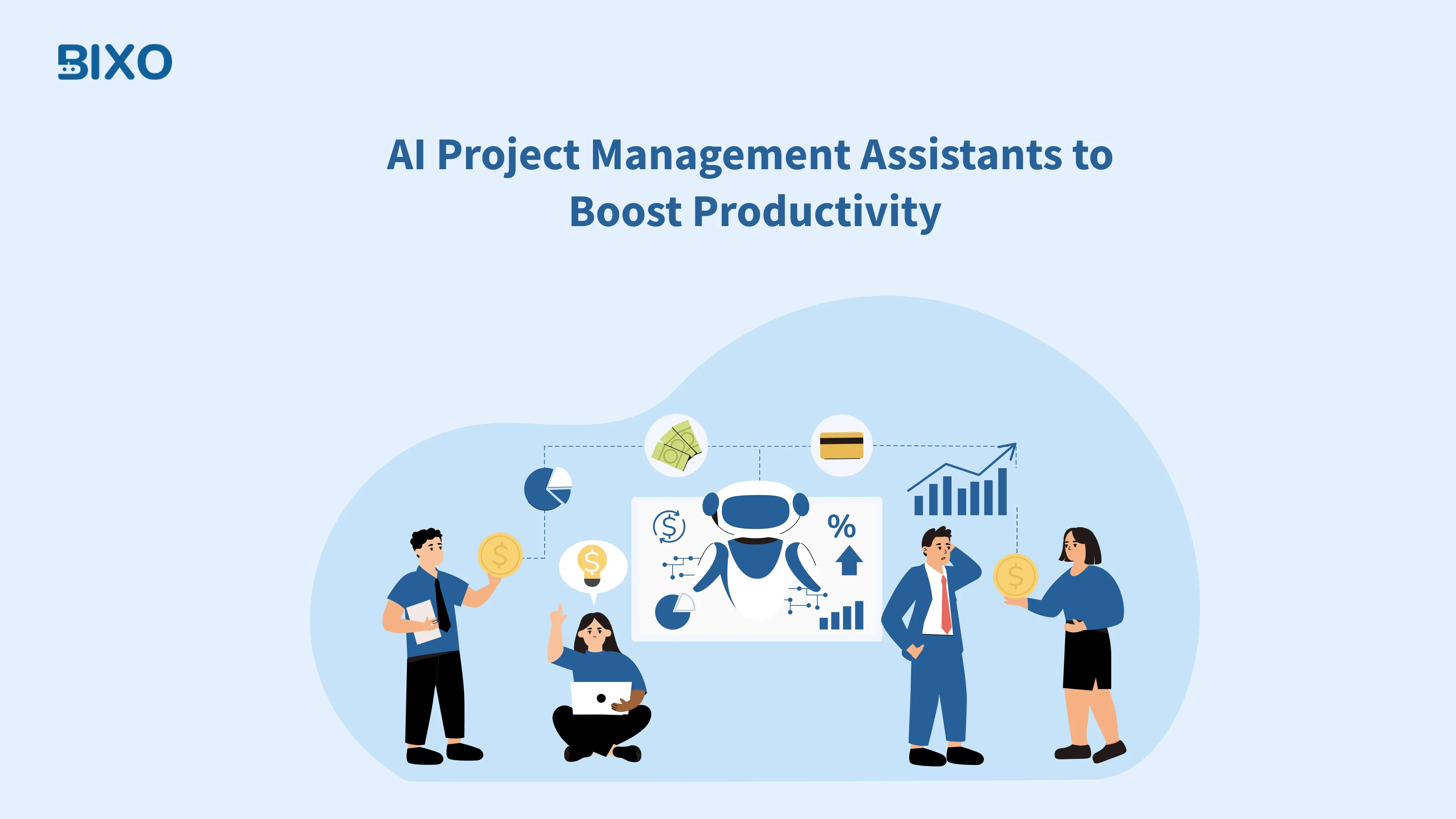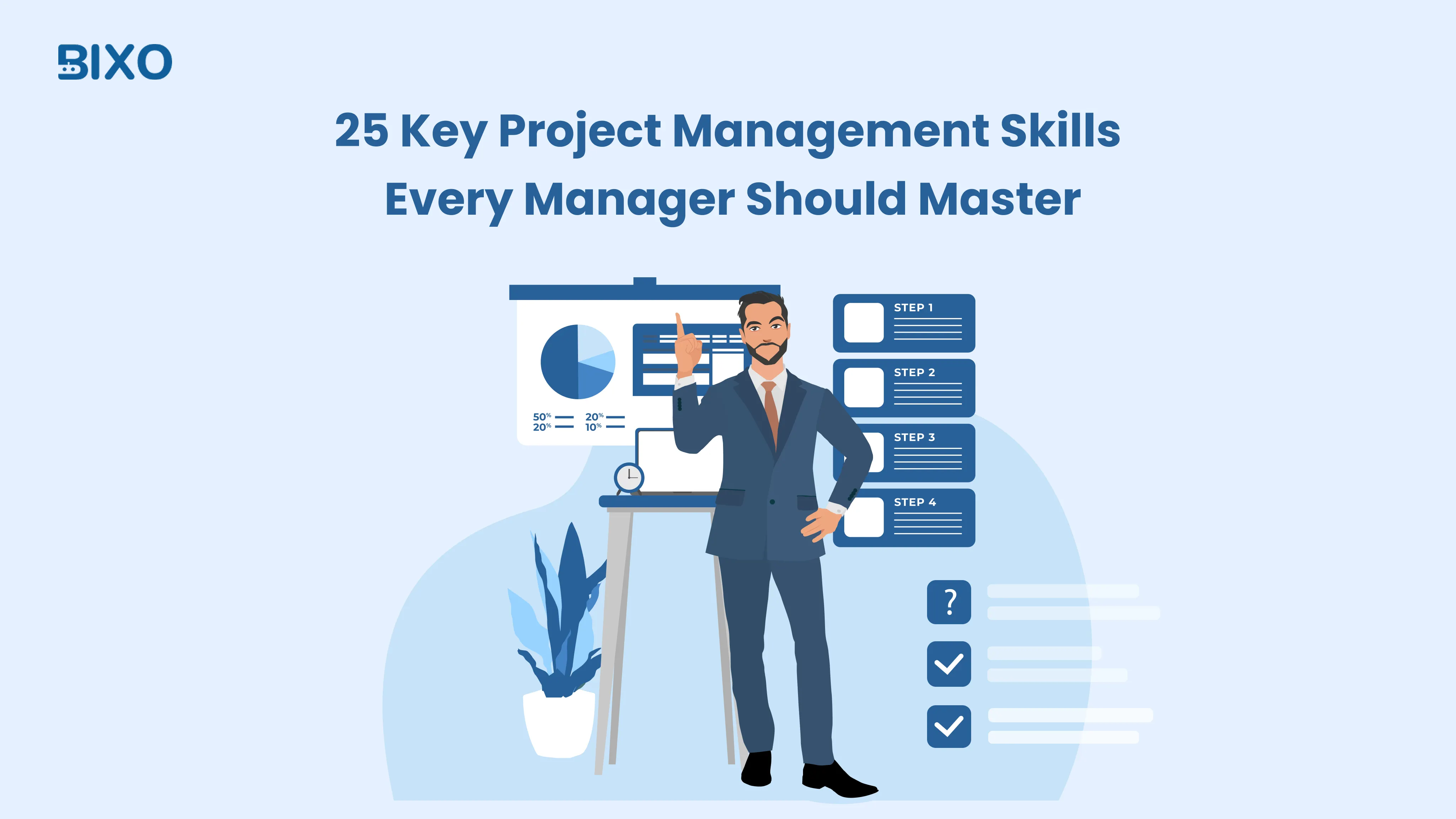
Table of Content
Focus on what matters. BIXO handles the rest!

Every project starts with a plan, but things don’t always go as expected. Tasks get delayed, communication breaks down, and goals become unclear. Without the right project management skills, even simple projects can feel overwhelming.
But don’t worry! By strengthening a few key skills, you can keep projects on track, guide your team with clarity, and achieve better results. In this blog, you’ll explore the 25 key project management skills that you should master to lead projects with confidence and ease.
What Are Project Management Skills?
Project management skills are the abilities you use to plan, organise, and guide projects from start to finish. Such skills include time and budget management, communication, as well as problem-solving within a team. You require a combination of both technical competence in project management, such as utilising tools and methodologies, and a keen ability to handle projects under pressure.
What makes a difference is how well you combine hard skills, such as planning and keeping records, with softer skills like leading others and being flexible. These skills don’t just help you get tasks done. They make sure your project completes on time and meets its goals. When you develop the best project management skills, you are ready to face challenges and deliver real results.
What Are 25 Project Management Skills Every Project Manager Should Have?
To manage projects well, you need different types of skills in the three main areas:
- Project Management Hard Skills
- Project Management Technical Skills
- Project Management Soft Skills
Let’s look at each of these groups and the important skills you should learn.
What Are the 10 Soft Skills in Project Management?
Soft skills are the personal qualities that really matter when handle project plan. They help you collaborate effectively with your team, fix problems, and keep things running without trouble. Getting good at these soft skills is just as important as knowing the technical stuff.
1. Strong Collaboration Skills
Collaboration isn’t just working next to others. It means talking openly, sharing ideas, and helping different teams work well together. When you’re good at collaboration, you make it easier for information to flow. This helps solve problems faster and make decisions quicker, which is important for finishing projects on time.
2. Ability to Work in a Team
Working in a team means being dependable, listening to others, and helping out when needed. It’s about doing your part while also thinking about what the whole group needs. Good teamwork builds trust and helps people come up with new ideas. When everyone does their part, projects get done more easily and quickly.
3. Communication Skills
Clear communication helps avoid confusion and makes sure everyone understands what’s going on. It means listening well, explaining things in a simple way, and adjusting how you talk depending on who you’re speaking to. Good team communication helps you set the right expectations, share updates, and fix problems before they get bigger. It’s an important skill that keeps your team and others working together smoothly.
4. Time Management Skills
Time management isn’t just about completing on time. It’s about deciding which tasks are most important and need to be done first. It means breaking big projects into smaller steps and planning your work in a way that’s realistic. When you manage your time well, you avoid rushing at the last minute and feel less work stress. This skill also helps you maintain a good balance so you can get things done without getting tired.
5. Confident Leadership Skills
Being a confident team lead helps your team trust you and follow your guidance. It means staying calm when things are uncertain and encouraging others to keep going when problems come up. Confident leaders explain the goal clearly, give tasks to the right people, and notice what each team member does well. This lifts everyone’s spirits and helps the whole team reach the project goals.
6. Organised Work Skills
Being organised is key to keeping projects on track. It means managing project schedules, keeping an eye on resources, keeping important business documents in order, and making sure tasks get done. When you stay organised, you can spot problems early and change your plans if needed. This helps avoid mistakes and keeps the project moving forward smoothly.
7. Problem-Solving Skills
Problem-solving skills help you deal with issues directly, find the main causes, and come up with practical solutions that require clear thinking, smart decisions, and balancing project triangle. Strong problem solvers don’t just fix problems. They expect them and make backup plans to keep the project on track.
8. Sharp Critical Thinking
Thinking critically means questioning assumptions, evaluating possibilities, and making evidence-based decisions rather than guesses. It is vital in the evaluation of risks, maximising resources, and enhancing processes. Applying critical thinking on a regular basis helps you make wiser decisions and achieve the project objectives quickly without unnecessary expenses.
9. Flexible and Adaptable Skills
Any project will always go through changes, whether a change of task priorities, sudden setbacks, or new stakeholder requests. Flexibility implies that you remain calm and can change your plans quickly without losing sight of the central objective. Being adaptable also means accepting new tools or methods that improve how you manage projects. This is the ability to keep things moving even when they do not go according to plan.
10. Conflict Management Skills
Conflicts can arise from misunderstandings, competing interests, or pressure. Good conflict management means addressing problems sooner rather than later, being able to take in all sides of the conflict, and finding a way forward that will allow the team to continue to work together. Proper conflict management eliminates tension and facilitates a respectful atmosphere, which is essential to ensure the sustainability of productivity and good working relationships.
What Are the 7 Hard Skills in Project Management?
Hard skills in project management are the practical abilities you use to plan work, keep track of time, and move a project from start to finish. These skills help you organise tasks, use resources wisely, and deliver results on schedule. Let’s look at each one.
1. Project Planning Skills
Good planning is the first step to making a project successful. It means setting clear goals, deciding timelines, marking key steps, and making sure everyone knows what to do. With solid planning, you have a clear path before starting, which helps you avoid delays and confusion later.
2. Scope Management Skills
Project Scope management means keeping the project within the limits you agreed on. It is about being clear on what is included, what is not, and avoiding extra work that can cause project delays or increase costs. This helps keep the work focused on the original goals without adding unnecessary tasks.
3. Project Documentation Skills
Project documentation is nothing but keeping clear and organised records for a project. From the first plan to progress updates and the final handover, good documentation makes sure everyone knows what is happening and can check details whenever needed.
4. Meeting Facilitation Skills
Meeting facilitation means running meetings in a way that gets things done. It is about having a clear plan, keeping the talk focused, making sure everyone stays on topic, and assigning decisions to the right people. Good facilitation saves time and keeps the project moving without delays.
5. Strategic Roadmapping Skills
Strategic roadmapping is about turning long-term project goals into a clear, workable plan. It links your overall vision to specific steps, deadlines, and tasks. It helps you spot possible problems early, use resources well, and make sure your short-term actions lead to long-term success.
6. Scheduling and Time Management Skills
Scheduling and time management mean planning work in a way that is realistic and clear. It is about setting a timeline, deciding what to do first, and making changes when plans shift. Doing this well helps finish work on time without overloading anyone.
7. Task and Workflow Management Skills
Task and workflow management is about knowing what work needs to be done, when to do it, and who will do it. It keeps things running smoothly, avoids delays, and helps the team stay productive. It’s simply about staying organised so the project keeps moving.
What Are the 8 Technical Skills in Project Management?
Technical skills help you plan, track, and finish projects in a better way. Here are 8 key skills that make your work easier and help you stay in control.

1. Proficiency in Project Management Tools
Using the right project management tools can make your work much easier and more organised. Tools like BIXO, Trello, Asana, Jira, or Microsoft Project assist you in tracking tasks, assigning work, setting deadline tracking, and keeping everyone on track. They are not just simple lists. They are more than that. They are an important part of project management skills that help you work faster, stay organised, and keep the whole project under control from start to finish.
2. Gantt Chart Expertise
Gantt charts are a simple way to see your project’s timeline. They show tasks, deadlines, and how different tasks connect. This makes it easy to spot delays, use resources better, and keep the project moving smoothly. They help you plan well, manage time, and stay in control from start to finish.
3. Kanban Board Management
A Kanban board helps you see the progress of work at a glance. You can track what is being worked on, what is waiting, and what is finished. Whether it is a physical board or an online tool like Trello or Jira, using a Kanban board makes work more organised, avoids delays, and helps everyone stay focused on what needs to be done right now.
4. Agile and Scrum Methodologies
Agile and Scrum are popular ways to manage projects that need flexibility. Agile is about adapting quickly when things change, while Scrum breaks work into short sprints to get results faster. Using these methods assists teams to work better together, finish tasks sooner, and keep the project on track even when plans shift.
5. Workload and Resource Planning
Workload and resource planning means making sure the right people have the right amount of work and the tools they need to do it. It’s about sharing tasks fairly, avoiding burnout, setting realistic deadlines, and using what you have in the best way so the project runs smoothly.
6. Budget and Cost Management
Budget and cost management means making sure the project’s spending stays within the planned amount. It is about guessing costs, keeping track of what’s actually spent, and changing plans if needed. Good control over the budget prevents overspending, makes future cost planning easier, and helps others trust you to deliver good results without wasting money.
7. Portfolio and Multi-Project Management
Managing one project can be tough, but handling several at the same time needs extra skill. Portfolio management is about making sure all projects match business goals, using resources wisely, and keeping track of progress. This way, your time, money, and effort go into the work that matters most.
8. Change Management Implementation
Projects don’t always go exactly as planned, and change management helps keep things on track when adjustments are needed. This skill is about understanding how changes will affect the project, updating plans, and helping the team adapt without slowing down. Good change management keeps the project flexible while still reaching the goals and maintaining quality.
How to Improve Project Management Skills for Success?
If you want to get better at project management, start with simple steps that make you more confident and skilled. Here are some easy and effective ways to begin.

1. Get Certified
Getting a certification is a quick way to improve your project management skills. Courses like PMP, PRINCE2, or Agile teach you clear methods to manage projects well. They also prove you have the skills and commitment to grow.
2. Gain Practical Experience
Knowing about project skills is useful, but you improve the most when you use them in real work. Handling real projects, even small ones, helps you practice planning, handling risks, and solving problems. Each project you finish teaches you something new and makes you more ready and confident for bigger tasks.
3. Join Project Management Events
Attend project management events like workshops, seminars, or meetups to learn from others and stay updated. You’ll get new ideas, real examples, and chances to connect with people in the field. These events help you keep your skills fresh and improve how you manage projects.
4. Use Project Management Tools
Knowing how to use project management tools well can make your work much easier. Tools like BIXO, Jira, Trello, or Microsoft Project help you keep track of tasks, manage time, and work better with your team. When you get good at using them, you handle projects more smoothly and solve problems more easily.
5. Focus on One Skill at a Time
Focus on one skill at a time. Trying to get better at everything all at once can feel overwhelming. Instead, choose one skill like scheduling, risk managing , or communication, and work on that until you feel good about it. Doing this step by step helps you build strong project management skills without feeling stressed.
Manage Your Projects Effectively Using BIXO
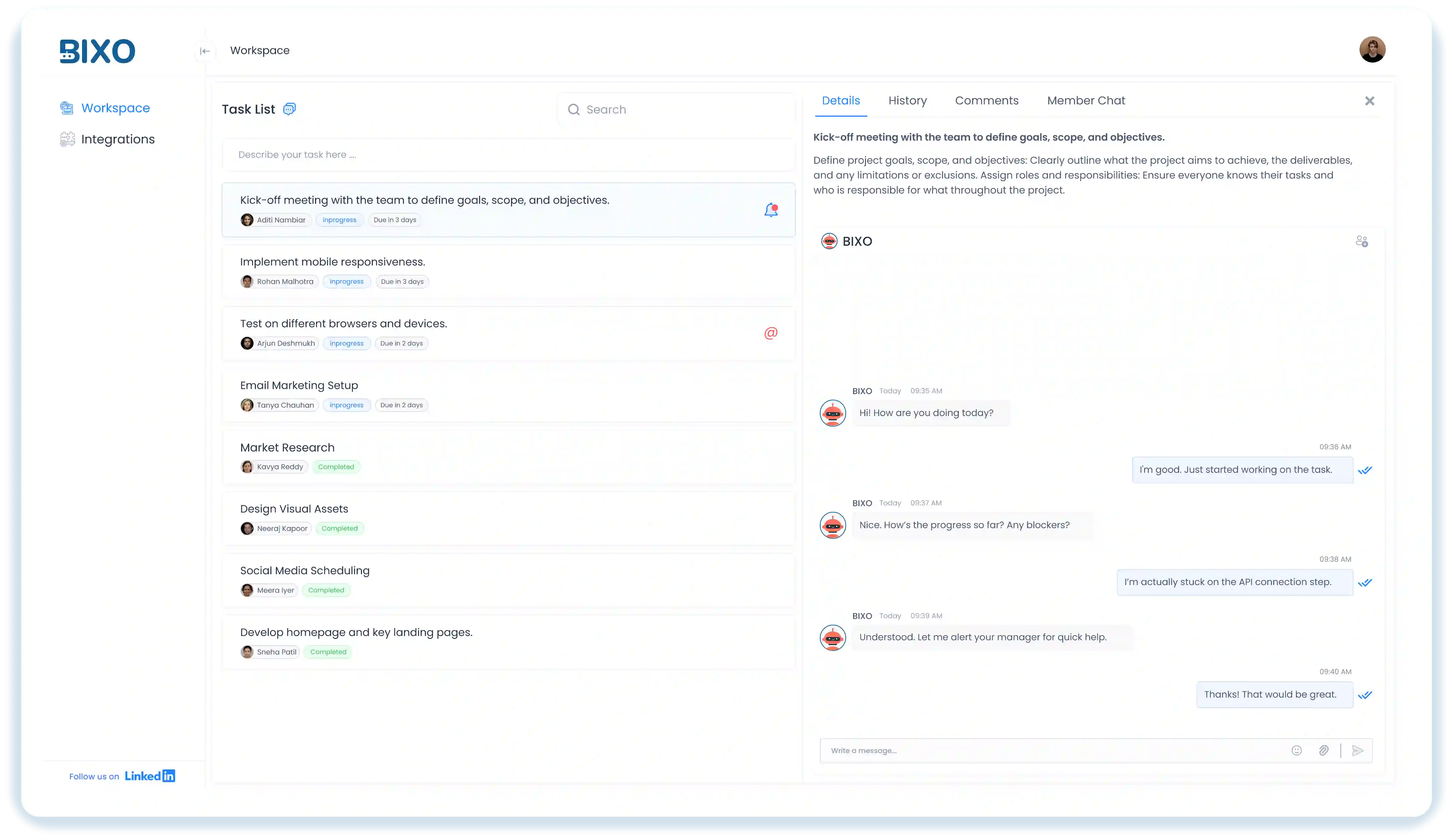
BIXO works as your AI manager assistant and asks your team about their task status, and then provides you with clear, simple summaries without you needing to follow up so often. It tracks deadlines, spots blockers at an early stage only, and only escalates important issues that really could have a negative effect on the effectiveness of your team. This allows you to use your project management skills where they will have the most impact, rather than wasting your time tracking the same status reports over and over.
BIXO also helps to manage larger teams without any additional stress. Whether it is managing logistics across multiple projects or balancing priorities that change day to day, the AI handles your day-to-day updates for you and allows you to keep your focus on task execution. You can get real-time updates on your progress, smart notifications, and fewer meetings, which means that you naturally improve your technical project management skills and general project management abilities. Managing work with BIXO makes it much easier to keep things on track, and you will have increased confidence in your ability to manage and lead projects.
Conclusion
Project management skills help you keep projects moving efficiently, manage teams seamlessly, and achieve your objectives without any stress. Building good competency in planning, communication, time management, and problem-solving has a huge effect on how you naturally approach daily challenges and the results you deliver. By improving both your hard and soft skills with the help of tools that accurately track and monitor, you will perform your tasks better and team lead with confidence. Your project management skills help you not only complete projects but also enhance how work gets done, setting the stage for continued success.
FAQs
Project management skills are the abilities that help you plan, organise, and finish projects well. They include things like communication and time management. These skills make project handling smoother, prevent delays, and help you achieve your goals.
Sure. Examples of project management skills include planning, scheduling, solving problems, managing budgets, and leading a team. These skills help keep work on track, use resources well, and finish projects on time with good results.
Hard skills in project management are practical abilities you use every day, like making schedules, managing budgets, and using tools. These technical skills help turn your plans into clear, measurable results.
The best skills to start with are planning, clear communication, and time management. These basic project management skills help you handle problems more easily and build a strong foundation for success.
Get a demo of BIXO
Recommended Blogs
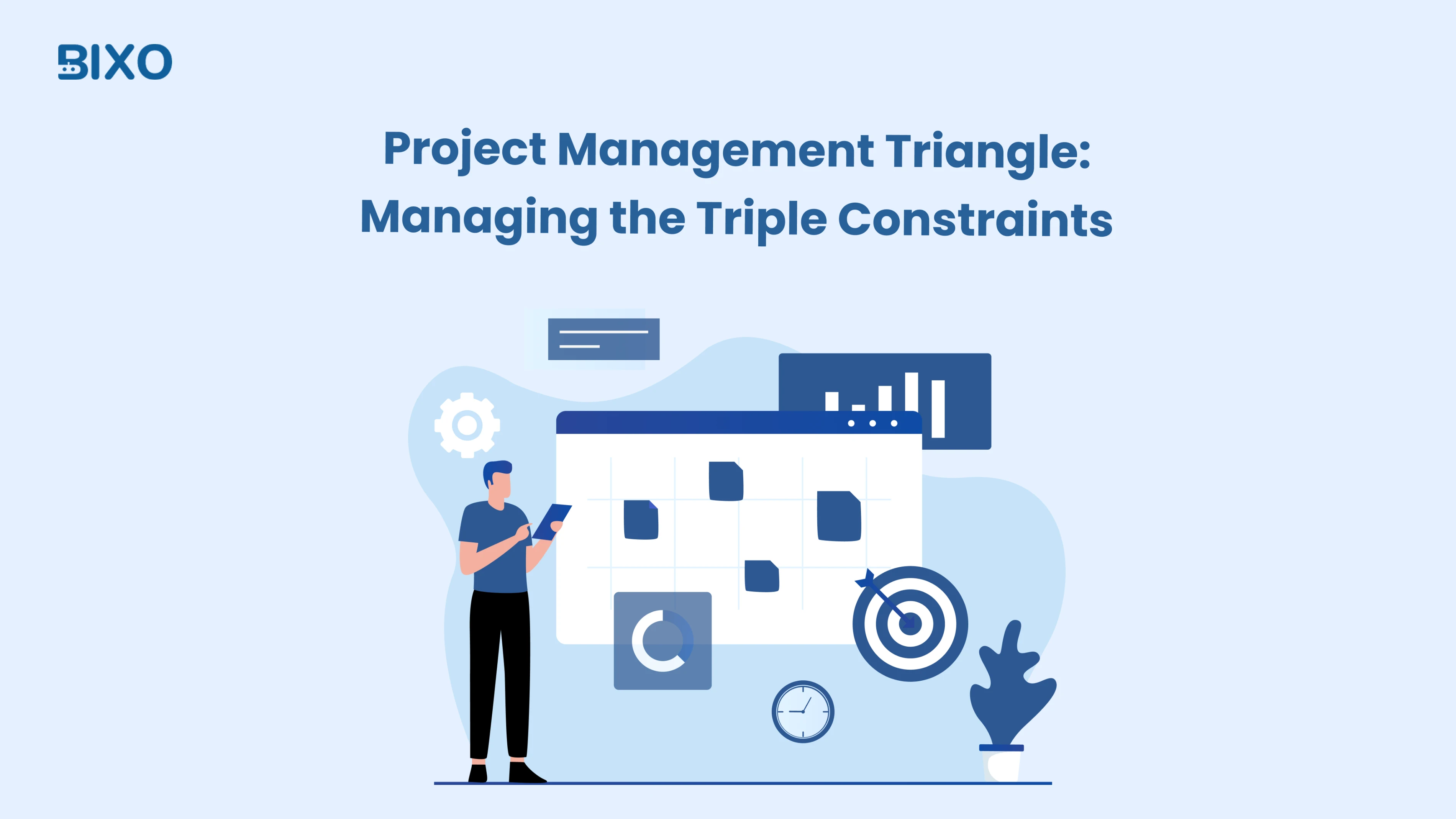
Project Management Triangle: Managing the Triple Constraints
Master the project management triangle by balancing scope, cost, and time with simple strategies that drive successful outcomes every time.
 Jahnavi Chintakrindhi |
Jahnavi Chintakrindhi |
 Oct 13, 2025
Oct 13, 2025

